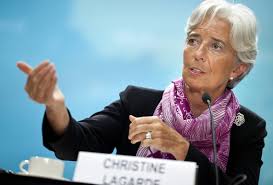The International Monetary Fund (IMF) has advised the Nigerian government on the need to reduce its tax exemptions and incentives list for companies as a strategic option of boosting non-oil tax collections.
In addition, the Fund also tasked government on tax reforms, including raising excise taxes and expanding its scope to cover more goods
The IMF’s Assistant Director, Fiscal Affairs Department, Cathy Pattillo, canvassed these fiscal imperatives on Wednesday during media briefing on the IMF Fiscal Monitor at the ongoing IMF/World Bank Group spring meetings in Washington DC, United States.
According to her, these reforms are critical to improving Nigeria’s non-oil revenue ratio to GDP which currently stands at about 3.4 percent and one of the lowest globally.
She said: “There is an emphasis also on improving excise taxes. And I think there have been some steps in that direction, but there is scope for the coverage of excises to other goods and also higher rates on excises.
“Another area is aggressive streamlining of tax incentives and exemptions. So there has been in Nigeria an effort with the strategic revenue growth initiative, looking at the comprehensive approach to tax reform, and this is very welcome”, Patillo added.
The banking expert noted that tax reform in Nigeria remained a very important issue, adding that one of the IMF’s main recommendations for the country is the need for comprehensive tax reform that would sustainably increase non-oil revenue.
She clarified: “The reason why that is needed is that Nigeria has one of the lowest ratios of non-oil revenue to GDP at around 3.4 percent in the world and the total tax revenue to GDP of around 8 percent is also low compared to its peers.”
It would be recalled that the Federal Government had over the past few years been exploring non-oil revenue sources with a view to increasing its ratio in the country’s overall tax collections.
For instance, the government recently spoke on its plans to raise the Value Added Tax (VAT) from the current 5 percent. However, the fiscal plan is already attracting criticisms from diverse sections of the public, particularly the Organized Private Sector (OPS) groups.






